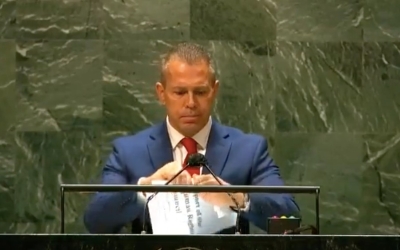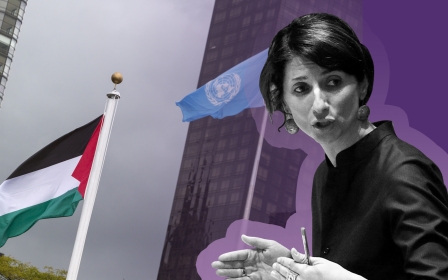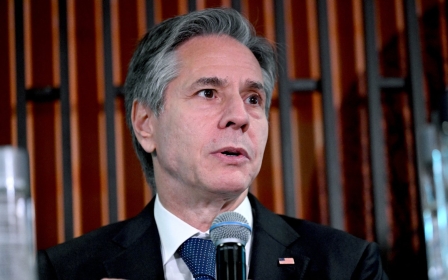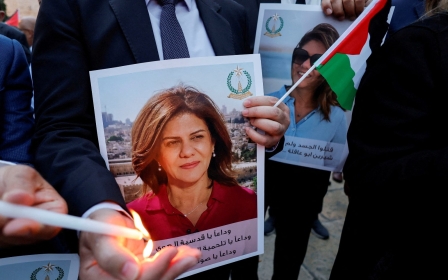Israel 'lied' about legal settlement over death of Palestinian-American, says family
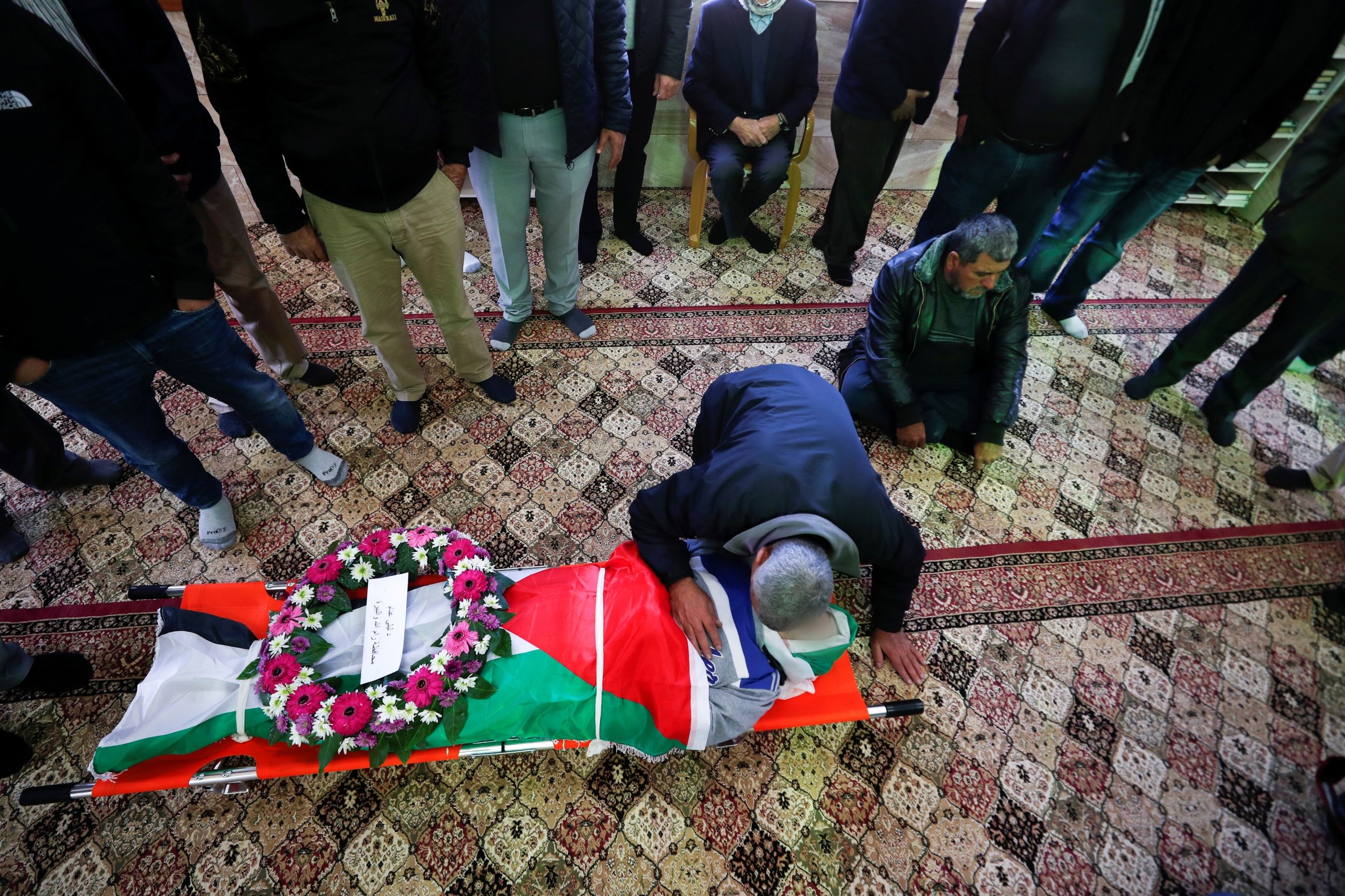
The Israeli military "flat out lied" about reaching a settlement agreement in the case of an elderly Palestinian-American who died following a violent arrest by Israeli troops, his family and the legal team told Middle East Eye.
Omar Abdalmajeed Asaad, 79, died in January in the occupied West Bank village of Jiljilya after he was dragged, handcuffed and gagged in the middle of the night by Israeli soldiers and left unconscious at a construction site.
An autopsy conducted by Palestinian doctors following his death showed that he had died of a stress-induced heart attack. The family subsequently filed a lawsuit against the state in Israeli courts.
'The family is insistent that their father did not die in vain. Even if Israel wrote a check for forty million dollars tomorrow, the family's not settling'
- Stanley Cohen, family lawyer
On 9 October, the Israeli army said that it had settled with the family, agreeing to pay them a sum of 500,000 shekels, approximately $141,000. However, the family's US-based attorney, Stanley Cohen, vehemently denied that the family had accepted any settlement.
According to Cohen, the state offered the family compensation on more than one occasion, including the 500,000 shekel amount, which was outright rejected months ago.
New MEE newsletter: Jerusalem Dispatch
Sign up to get the latest insights and analysis on Israel-Palestine, alongside Turkey Unpacked and other MEE newsletters
"The family is not interested in a monetary settlement which will end the investigation," Cohen told MEE, adding that their stance on the case is that the Israeli military "murdered" Asaad.
"They demand justice," Cohen said. "The family is insistent that their father did not die in vain. Even if Israel wrote a check for $40 million tomorrow, the family's not settling. It's not about money."
Omar's cousin, Abd al-Ilah Asaad, 60, also told MEE that the family had not accepted Israel's offer for a monetary settlement. When asked why he believed that the government released a statement claiming as such, he said: "Israel said we accepted their money to make our case weaker. They want to shut down discourse about his death in the international media."
Legal battles
While the family is pursuing legal action against the Israeli military and state locally, Cohen is representing the family in a simultaneous claim in the US.
Asaad was born in Jiljilya, north of Ramallah, but lived in the US for 40 years between Chicago and Milwaukee. He returned to the West Bank in 2009 to retire with his wife.
Cohen says a request has been submitted to the United States Department of Justice for support through a mutual legal assistance treaty, which would enable US law enforcement authorities and prosecutors to obtain evidence, information, and testimony from relevant Israeli agencies regarding Asaad's case.
In February, the Israeli military said its investigation found that Asaad's death resulted "from a moral failure and poor decision-making on the part of the soldiers".
One senior officer was reprimanded and two others were removed from leadership roles. Israeli military police said it was carrying out another investigation but the soldiers are not likely to face criminal charges.
Alternatively, Cohen said another request has been filed for the FBI to be dispatched for a formal investigation into the 79-year-old's death. But Cohen says they have yet to receive any response from the US government on their petitions.
The family is not looking for one specific outcome in their legal journey for justice, Cohen said.
At the very least, he added, they would like the Israeli soldiers involved in the death of Omar to be prosecuted and held accountable. If damages are also awarded in conjunction with due process, he said, the family would be willing to accept it.
"We are insisting that punitive damages be imposed, which will send a loud and clear message to the Israeli military, Israeli government and Israeli courts and prosecutors that there is a very heavy price to pay that has absolutely nothing with compensatory damages," Cohen said.
US 'lack of regard'
After Asaad's death, several US lawmakers demanded that the US State Department launch an investigation.
The US government has asked Israel for a "thorough" probe but stopped short of launching its own, likewise in the case of Shireen Abu Akleh, another Palestinian-American shot dead by Israeli force in the West Bank.
Asaad and Abu Akleh are among at least 175 Palestinians who died in attacks by the Israeli army and settlers this year.
According to the UN, 2022 is so far "the highest year for Palestinian fatalities in the West Bank, compared to the same period in the previous 16 years."
'Our family will keep fighting, and we hope the international community puts more pressure on Israel to stop attacking Palestinians and comply with international law'
- Abd al-Ilah Asaad, Omar's cousin
In the case of Asaad, the US has shown a "lack of regard" for one of its citizens, according to Cohen.
"He is a 79-year-old US citizen who has spent a lifetime paying his taxes, being a good citizen with no problems in the United States and raising a family," Cohen said.
"There is a social contract, which says 'I cede certain power to you over my life. But in exchange, you are responsible for guaranteeing that my rights are protected.' For Omar Asaad, they completely ignored that."
The family's legal team are still in the early stages of their investigation, which may take several years. But Cohen said they will not rest until justice is served.
Abd al-Ilah Asaad said that he hopes his cousin's case will be different and that the weight his US citizenship carries will play a role in the local Israeli court case.
"Although Israeli courts rarely give Palestinians justice or respect, we hope this case will be different," he said.
"Our family will keep fighting, and we hope the international community puts more pressure on Israel to stop attacking Palestinians and comply with international law."
Middle East Eye delivers independent and unrivalled coverage and analysis of the Middle East, North Africa and beyond. To learn more about republishing this content and the associated fees, please fill out this form. More about MEE can be found here.


